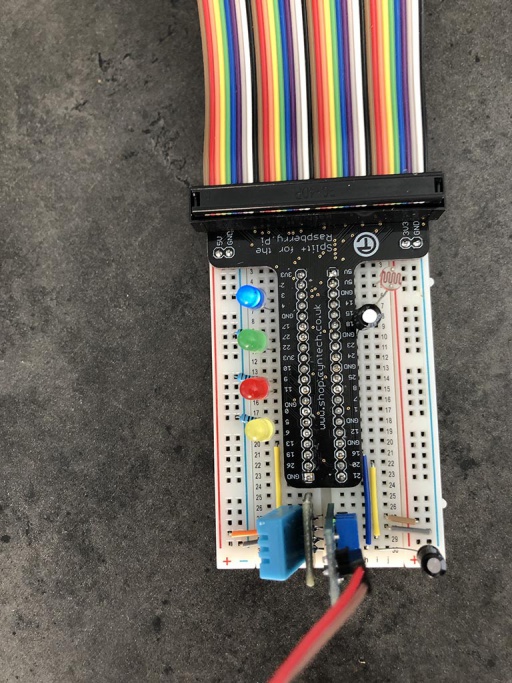Difference between revisions of "Shared:2019W2G1Concept"
(→CONCEPT) |
|||
| Line 1: | Line 1: | ||
__NOTITLE__ __NOTOC__ | __NOTITLE__ __NOTOC__ | ||
| + | |||
| + | [[File:sample.png | 850px]] | ||
| + | ---- | ||
| + | |||
| + | Siddharth Jain - Krishna Jani - Luuk Goossen - Stepan Serdiukov - Haobo Zhang - Pierre Oskam | ||
| + | |||
| + | ---- | ||
| + | |||
| + | =='''Off-Earth Biology Lab'''== | ||
<br> | <br> | ||
Revision as of 23:38, 8 April 2020
Siddharth Jain - Krishna Jani - Luuk Goossen - Stepan Serdiukov - Haobo Zhang - Pierre Oskam
Off-Earth Biology Lab
CONCEPT
Sensors and Actuators, first iteration:
These images show the first iteration of the sensors and actuators part of our concept. The goal is to create an integrated irrigation and plant management system into the fragment. This first prototype manages to capture temperature, humidity, luminance and soil moisture for the plants. When values are incorrect, a warning LED will turn on to notify people of the problem.

Downsides: The Raspberry Pi doesn't have analog inputs. Therefore, both the luminance and soil moisture are measured by charging a capacitor and calculating the length of the charge. This can be improved by including an ADC into the prototype. Another issue is that the resistance of the LDR is unknown, therefore the luminance isn't calculated accurately and based on perception. This can be improved by swapping out the sensor for a sensor with known resistance. Another improvement can be linking multiple plant systems onto a single microcomputer, therefore saving required hardware
